Mold isn’t just an ugly patch on your wall — it’s a silent threat that could be hiding in the corners of your home, affecting your health and your rights as a tenant. If you’ve spotted suspicious discoloration, noticed a musty smell, or experienced unexplained allergies at home, it’s time to dig deeper.
Let’s break down what mold really is, why wiping it away won’t cut it, and what steps you can take — legally and practically — to protect yourself when it shows up in your rental space.
What Is Mold and Why Does It Spread So Easily?

Mold is a type of fungus that thrives in moist, humid environments. It spreads quickly when there’s excess moisture from leaks, poor ventilation, or condensation. That tiny black or green spot on your ceiling? It could be just the tip of the iceberg.
The real problem lies beneath the surface. Mold spores infiltrate porous materials like drywall, carpet, or wood — and once they settle in, they’re incredibly hard to remove without professional help.
Your home may look fine at first glance, but mold can quietly grow behind walls, under floors, or inside your HVAC system if moisture isn’t properly managed. Identifying the source of the dampness is key to stopping mold at its root.
Why Simply Cleaning Mold Isn’t Enough
Wiping visible mold away with bleach or cleaner might make it disappear — temporarily. But don’t let that fool you.
Here’s the problem: mold isn’t just a surface issue. If you don’t eliminate the underlying moisture, it’s going to come right back — often bigger and worse. Even worse, cleaning mold improperly can release airborne spores into your home, increasing your exposure and spreading contamination to new areas.
Video : What is Black Mold and What are the Symptoms of Black Mold Exposure – Mold Busters
Effective mold removal requires:
- Identifying the source of moisture (like a leak or lack of ventilation)
- Removing or replacing contaminated materials
- Disinfecting and drying the affected area thoroughly
Ignoring this process can lead to a vicious cycle of recurring mold and mounting health concerns.
Mold Exposure: What’s Really at Risk?
Let’s talk health. Breathing in mold spores over time can wreak havoc on your body — especially if you’re already sensitive to allergens.
Common symptoms include:
- Nasal congestion and sneezing
- Itchy eyes or skin rashes
- Persistent cough or wheezing
- Headaches and fatigue
For people with asthma, allergies, or compromised immune systems, mold exposure can trigger severe respiratory issues and even lung infections. Children and the elderly are particularly vulnerable.
So no — mold isn’t just an aesthetic issue. It’s a genuine health hazard, and it needs to be taken seriously.
Are Landlords Responsible for Mold? Absolutely.
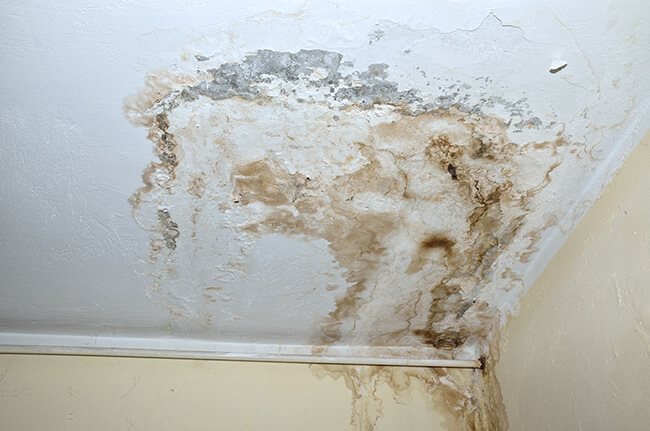
If you’re renting and mold shows up, you’re probably wondering: Is it my responsibility, or the landlord’s?
The answer depends on the situation, but in most cases, landlords are legally required to maintain safe, habitable housing. That includes addressing mold issues caused by:
- Roof or plumbing leaks
- Faulty windows or insulation
- Poor ventilation systems
- Construction defects
They’re also required to act promptly once they’re made aware of the issue. As a tenant, you have every right to expect repairs and remediation when mold arises from structural or maintenance problems beyond your control.
What to Do If You Discover Mold in Your Rental
Finding mold can feel overwhelming — but don’t panic. Here’s how to handle it the smart way:
- Document everything. Take clear, dated photos of all mold spots and any water damage. Keep records of odors, health symptoms, and room conditions.
- Notify your landlord in writing. Be specific. Include photos and describe the issue, its location, and any impact on your living conditions.
- Request action. Politely but firmly ask for immediate remediation and repairs. Give a reasonable deadline for response.
- Keep copies. Save every email, message, and repair request. If it comes to legal action, documentation is your strongest ally.
How to Talk to Your Landlord About Mold
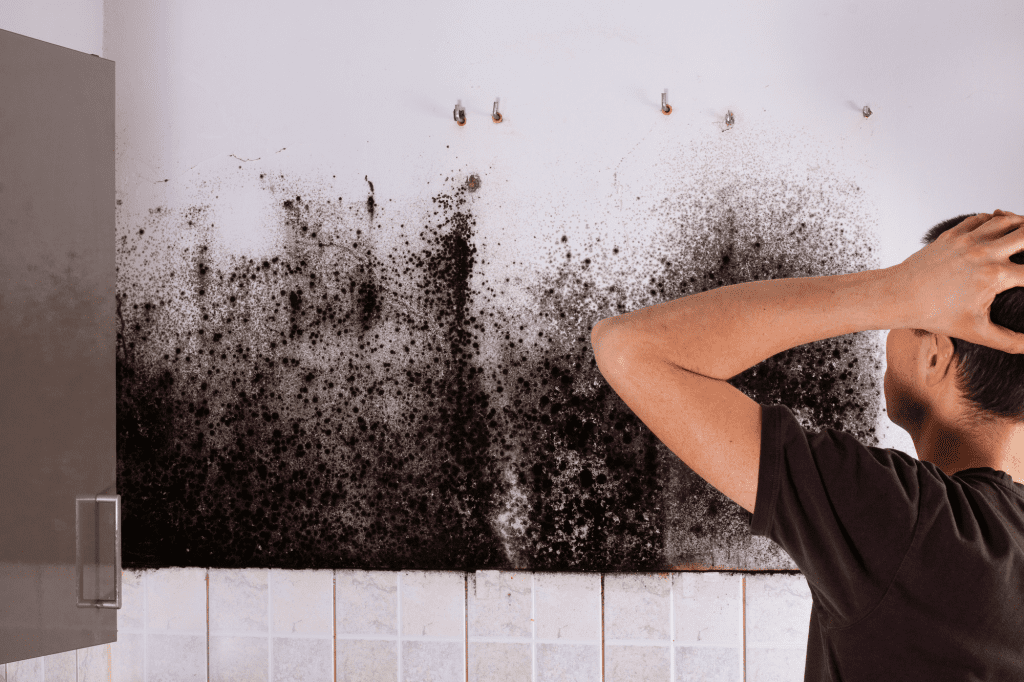
Your message doesn’t have to be confrontational — just clear and professional. Focus on facts: the health risk, the damage, and your rights. Here’s what to include:
- The date you noticed the mold
- Where it’s located
- How it’s affecting your health or home
- A request for inspection and professional treatment
If your landlord drags their feet or ignores the issue, you may need to escalate — either through local housing authorities or legal support.
When to Call in the Pros
Some mold situations are just too big or too hidden for DIY solutions. In these cases, it’s best to call a professional mold inspector or remediation company. They can:
- Locate hidden sources of moisture
- Assess the extent of contamination
- Safely remove mold and prevent it from spreading
If your landlord refuses to hire professionals, you may be able to file a formal complaint or even withhold rent, depending on your local tenant laws.
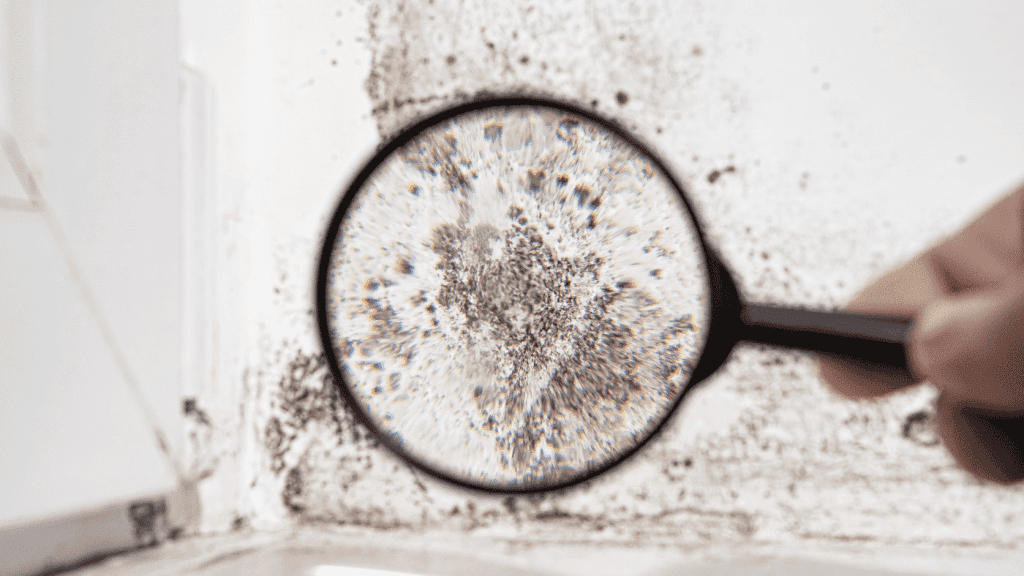
Know Your Rights as a Renter
Different states and cities have different laws, but most require landlords to provide a safe, habitable home. If they don’t address mold caused by poor maintenance or structural issues, you may have the right to:
- Break your lease early
- Seek rent reductions
- File a lawsuit for damages
- Contact a local housing authority
Always research tenant rights in your area and speak with a legal expert if you’re unsure.
How to Prevent Mold from Coming Back
Once the mold is gone, keeping it away means managing moisture and airflow in your space. Here are a few smart habits:
- Use exhaust fans in bathrooms and kitchens
- Run a dehumidifier in humid climates
- Fix leaks immediately
- Keep furniture slightly away from walls to allow air circulation
- Avoid overwatering houseplants
- Don’t let wet clothes or towels sit around
A few small changes can go a long way toward keeping your home mold-free for good.
Video : 1. When Mold in the Home Is a Problem (English)
Conclusion: Take Mold Seriously — And Take Control
Mold isn’t something to ignore or cover up. Whether you’re a tenant or a homeowner, it’s a warning sign that something’s wrong — and a direct threat to your health and comfort.
If you see mold, don’t wait. Act fast, document everything, and communicate clearly with your landlord. And if they won’t help? You’ve got rights — use them.
Because you deserve to live in a space that’s safe, clean, and healthy — not one where mold quietly threatens your health behind the walls. By staying informed, standing up for your rights, and taking action when needed, you’re not just protecting your home — you’re protecting your peace of mind.
So don’t settle for temporary fixes or vague promises. Demand real solutions. Whether it’s reaching out to your landlord, hiring professionals, or seeking legal support, taking the right steps today can prevent bigger problems tomorrow.
Mold may start small, but when ignored, it spreads — both in your home and in the impact it has on your life. Tackle it head-on, stay proactive, and remember: a healthy home isn’t a luxury — it’s a basic right.
‘Hey, You’re Fired, Old Man,’ Manager Informs Janitor, Not Knowing He’ll Be Her Boss the Next Day – Story of the Day

A hardworking woman turns into an aggressive and impatient boss after her most recent promotion at a store. She gets away with it until she insults and fires an old janitor.
Nia had recently been promoted to general manager of a major fashion retail outlet. Just a week into her new role, she was already implementing major changes, guided by a binder of ideas she had accumulated over the years.
One morning, Nia addressed her staff.
“Alright, guys. Is everyone clear on the new protocols we’re going to follow?” she asked.
The team responded with nods and gentle affirmations.

For illustration purposes only | Source: Getty Images
“I don’t want anyone deviating from my guidelines, so here’s what we are going to do,” she continued. “Anybody who fails to follow the new rules — whether it is about uniform, customer greetings, display arrangements, punctuality — will lose their incentive for that month,” Nia declared, her face beaming with pride.
The staff exchanged worried glances. Nia’s drastic measures made them fear for their livelihoods, as even minor mistakes could cost them dearly.
But despite her recent changes, the team respected Nia. They knew her journey from an intern to the top position and admired her dedication to the fashion industry.

For illustration purposes only | Source: Pexels
However, with time, Nia’s approach became increasingly problematic. She set unrealistic goals and responded harshly to small errors. Her decisions, like extending shifts and imposing strict rules, were met with silent frustration from the staff. Their only respite, weekends, was now occupied with work. But that wasn’t all.
Nia’s strategies, like reducing loading costs by involving sales staff and limiting employee breaks, pushed the team to their limits. She even banned sitting during shifts and restricted sick leaves, all in the name of creating a good impression for customers.
“We’ll have to show them we are never tired of serving them. And always serve them with a smile. Am I clear?” Nia instructed sternly. She was overly pleased with the way she was conducting things.

For illustration purposes only | Source: Pexels
Raised by a single mother, Nia had faced numerous rejections before landing an internship at the fashion outlet. Her dedication to her job and hard work quickly led to her promotion.
From her office, she looked out at the street where she once sought opportunities, determined never to return to those hard days. Under her leadership, the store buzzed with activity, though the staff struggled with the overwhelming workload and strict deadlines she set. Nia was happy until… the work really started taking its toll on the employees.
Over time, her strict management led to a drastic drop in sales, contradicting her ambitious plans. Furious, she confronted her exhausted staff. “Our ratings are dipping. We’ll be ruined at this rate,” she yelled. “Extend your shifts, cut down on breaks… do whatever it takes! We have to boost sales!”
Nia couldn’t understand the sudden decline and increased the workload even more. One day, after a tense client meeting, she found Maya, a saleswoman, asleep on the counter.
“How dare you sleep during work??” Nia yelled.

For illustration purposes only | Source: Pexels
Maya, startled and panicked, apologized, but Nia was unforgiving. “Meet me in my office,” she demanded. Gathering the staff, Nia, already upset about the sales, decided to demonstrate her authority.
She fired Maya on the spot, tossing her paycheck at her. The team was shocked but remained silent. They knew Maya was exhausted from overworking, but who would dare to go against Nia? They wanted to keep their jobs.
But as Maya was leaving, Victor, a 68-year-old janitor, spoke up. “Nia, child, I’ve got something to say,” he said calmly, despite Nia’s obvious irritation.
“We’re all happy to help with your vision, Nia,” Victor began, trying to reason with her. “But maybe we could let go of the small mistakes…”
Nia, angered by his audacity to speak up, cut him off. “That’s enough, Victor! Do you think I haven’t noticed your tardiness and long lunch breaks?” she retorted. “And let’s not forget how you arrive late daily!”

For illustration purposes only | Source: Pexels
“Nia, there’s a reason why I’ve been coming later than the others…”
Nia couldn’t believe that the older man had interrupted her again. Looking at the other employees stare at her, anticipating her reaction, she decided to put her foot down and set an example once and for all.
“I don’t care about the reason! Let this be an example, folks,” Nia said. “Anyone who makes excuses on my watch will be fired. Hey, you’re fired, old man! Now you can accompany Maya and get lost!”
Maya and Victor left quietly while the rest of the staff watched in dismay, tears in their eyes. Nia’s ruthlessness had reached a new level, leaving everyone in shock.
Though it was the end of Victor’s job at the store, an unexpected turn of events awaited him the next day.

For illustration purposes only | Source: Getty Images
Mr. Gordon, the owner of the multi-million-dollar store chain,unexpectedly visited his store to address the sudden revenue decline.
“Good morning, everyone! How are things going?” Mr. Gordon asked all the employees.
“It could’ve been much better,” a worker replied, with others nodding.
“What’s up? Aren’t you guys excited for the Christmas holidays?” Mr. Gordon inquired.
“Some of us wanted an extended Christmas break, but Miss Ferguson only allowed two days off,” another employee explained.
Mr. Gordon partially understood what was happening and called Nia to his office.
“Miss Ferguson, our revenue has dropped drastically. What happened? Do you need help?” he asked while they sat across from each other.

For illustration purposes only | Source: Pexels
Nia blamed the staff, claiming they were lazy and needed close monitoring.
“I see…We had the same ‘lazy’ staff with us the last month, didn’t we? But everything was much better. We didn’t hire anyone recently, so I don’t understand why they are suddenly acting lazy.”
Mr. Gordon gave Nia a month to improve the situation. As he was leaving, he asked about Victor, the custodian.
“Where’s Victor? I didn’t see him today,” he said.
“He was fired for being late and too old to work,” Nia hesitantly revealed.
Mr. Gordon was shocked. “WHAT? Do you know you fired the co-owner of this store?”
Nia was stunned. “The co-owner? But he’s just a janitor!”

For illustration purposes only | Source: Getty Images
Mr. Gordon shared a story from his childhood. “I still don’t remember what happened that day…but my father told me I ran after an ice cream van and almost got hit by a car. Victor had seen me while emptying the trash and rushed to my rescue. He pushed me away and saved my life, but he ended up in intensive care after being hit by the car.
“My father, the original owner of this store, offered him a share in the business. Do you know what Victor said when my dad wanted to reward him? ‘I just did what any normal human was supposed to do.’ Victor accepted the offer to become a co-owner because my father kept persuading him, but on one condition. That he would work as a janitor.”
He continued, “Victor lost his wife and child during childbirth and considered the staff here his family.”
Mr. Gordon then dropped a bombshell. “You must apologize to Victor. He’s taking over this unit tomorrow. I’ll come again, and it’s up to Victor to decide whether or not I should fire you.”

For illustration purposes only | Source: Getty Images
Panicked and fearing for her job, Nia drove to meet Victor, worried about facing him and the challenges ahead. “How will I boost sales in a month? How will I face Victor? It’s his fault, too. Why did he just walk away without telling me who he was? Now, everything is against me. What will I do?” she fretted.
Nia arrived at Victor’s modest home, surprised by its simplicity despite his co-ownership of a lucrative business. She knocked, and Victor greeted her warmly, inviting her in for apple pie.
“Mr. Gordon told me you’d come. Please, make yourself comfortable,” Victor said, unaffected by her previous actions.
Nia felt awkward in the humble setting. Victor, sensing her unease, began to talk about Mr. Gordon’s father’s business philosophy.
“Unlike others, he valued his staff first. He provided nap rooms, bonuses, corporate events, and weekends off and ensured customers didn’t mistreat them. He treated employees like family,” Victor explained.
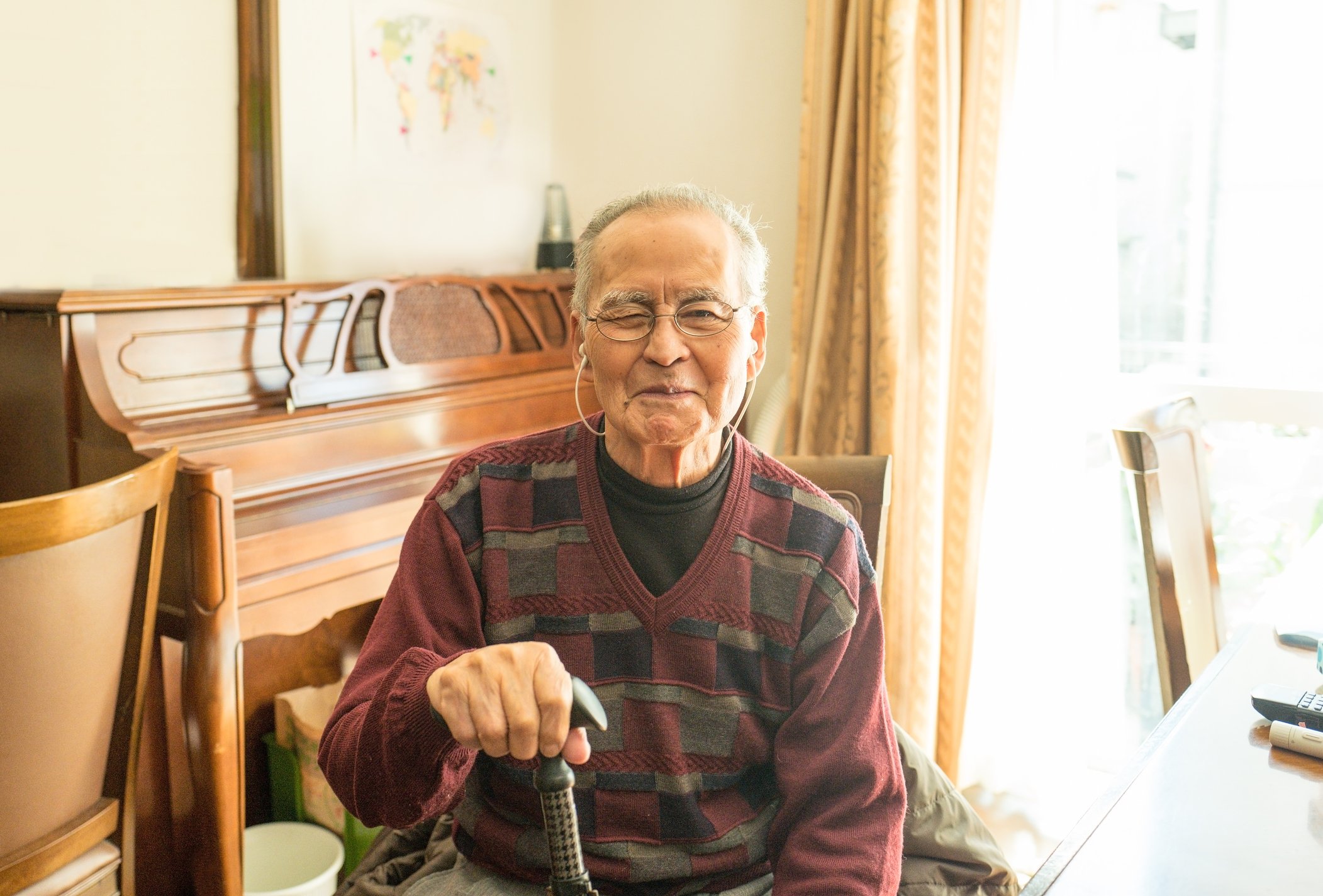
For illustration purposes only | Source: Getty Images
Nia shyly nodded, partially realizing what had gone wrong. “But how does that help with the growth of the business? If employees get such perks, how will they work without distractions? Won’t they take it for granted?” she said.
Victor smiled. “When employees love their work, they provide top-notch service, satisfying customers and growing the business. A smart boss finds ways to make employees devoted. He doesn’t fire them.”
As Victor hungrily devoured his pie, he requested Nia to call Maya back to work. “You may never know how fate works for others, Nia. You joined as an intern, but you became the general manager. You may never know what potential a simple salesgirl like Maya can have. Never underestimate and judge others by their appearance or job!”
Nia grinned, and just as she was about to leave, Victor stopped her. “Don’t worry, Nia. I will not fire you. But we will decide later together with all the employees and Mr. Gordon by a vote, alright?”

For illustration purposes only | Source: Getty Images
Assured she still had a second chance, Nia returned to the store and gathered all the employees in her office. They were afraid about what more rules she was going to impose on them. But none of them had expected to see what was about to happen next.
“Good day, everyone!” Nia began with a smile. Everyone thought it was unusual because she had never greeted them with a smile since day one of her promotion.
“I would like to tell everyone that Victor, the company’s co-owner, will be heading us from tomorrow!”
The employees were shocked at the revelation. Some of them didn’t have a clue that the custodian of their store was their boss.
“Don’t be shocked, guys! I am young and new to this trade, and I made mistakes. I hope you’ll all forgive me for what happened in the last few days. Maya and Victor will be back tomorrow, and we will work as a team. Is that clear?”

For illustration purposes only | Source: Pexels
From the next day onward, Nia followed Victor’s advice and implemented Mr. Gordon’s dad’s principles. She treated her employees respectfully and did not show authority over them. She thought more about them and made sure each and every employee loved their job.
As days passed, Nia’s efforts worked in her favor. The employees started giving their best, and as Nia had wanted, the sales for the next quarter surged with impeccable results.
Mr. Gordon was impressed with Nia’s efforts, and with Victor, he decided not to fire her. Five years later, Nia was promoted to the position of CEO of all the outlets.
As for Victor, he chose to keep working as a janitor because he loved his job.
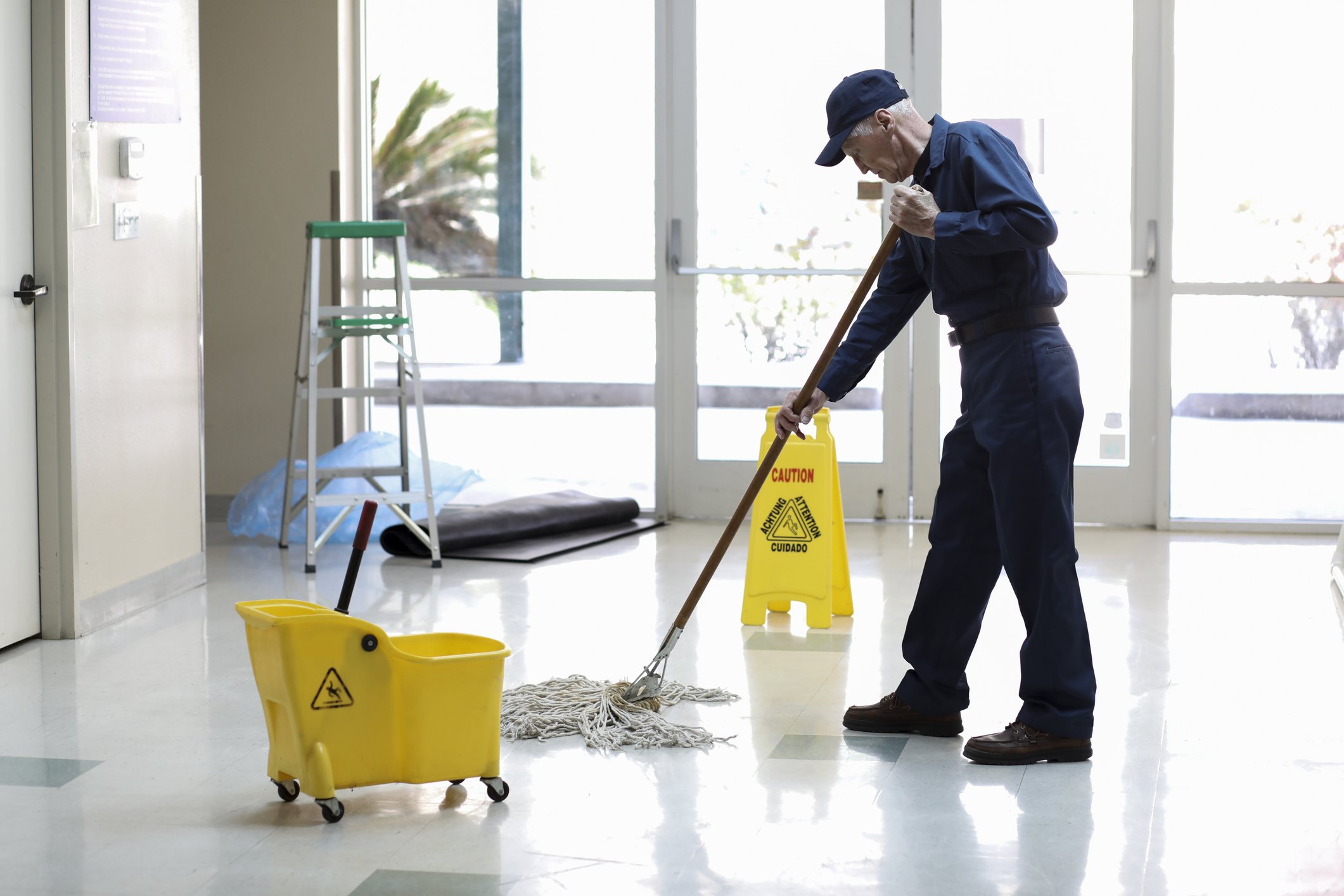
For illustration purposes only | Source: Getty Images
Tell us what you think about this story, and share it with your friends. It might brighten their day and inspire them.
If you enjoyed reading this story, you might like this one about a young kid who yells, “There’s something inside!” after sitting on the old sofa left to him by his late granny. He finds something inside the furniture that changes his life forever.
This piece is inspired by stories from the everyday lives of our readers and written by a professional writer. Any resemblance to actual names or locations is purely coincidental. All images are for illustration purposes only. Share your story with us; maybe it will change someone’s life.
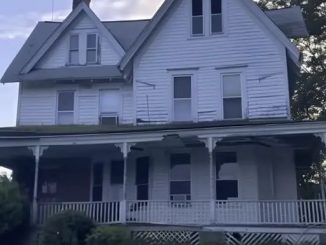


Leave a Reply